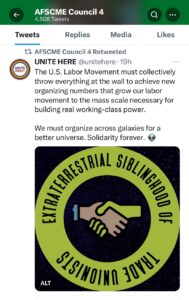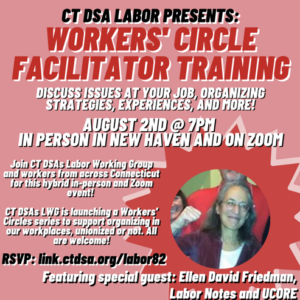DEEP Commish Wants to be Supreme Ruler of the Environment
State and local officials held a press conference in New Haven on Wednesday (July 26) to announce proposed regulations on cars and trucks to reduce air pollution.
Katie Dykes, commissioner of the Department of Energy and Environmental Protection (DEEP), led the discussion and declared that she needs more “regulatory authority” to “reduce emissions and provide cleaner options for consumers.”
This isn’t the first time the commissioner has lobbied for policy changes that can only be described as a blatant power grab. During the 2023 legislative session, she testified favorably on a bill (SB 1145) that would have given her department new broad powers to adopt regulations and implement policies and strategies without legislative oversight. If passed, she could have entered into agreements with states and Canadian provinces similar to the failed TCI gas tax proposed in 2021.
Ultimately, SB 1145 died in the Appropriations Committee (and after Yankee Institute sounded the alarm on the bill).
What regulatory authority is she looking for? So far, the details have been vague, but this is what we know:
- SB 1145 would have also allowed her to develop “market-based compliance mechanisms” — a euphemism for a gas tax, cap-and-trade or cap-and-invest. It would have also given her authority to set new, stricter limits for greenhouse gas emissions across a broad range of economic sectors — including home heating and cooling.
- More regulatory power would allow DEEP to enforce the Department of Transportation target of reducing vehicle miles traveled (VMT) by five percent per person by 2030 (from a 2019 baseline). Currently this reduction in VMT is a goal with no ability to enforce or punish those who won’t or can’t comply. Giving DEEP more power would allow them to impose fines or taxes on those exceeding the target.
It will be easy to track and fine individuals due to the new pilot program DOT is conducting that puts devices in cars that will register the amount of miles driven. The program will determine the possibility of replacing gasoline taxes with fees based on the number of miles residents drive.
Replacing the gas taxes with a user fee is a fair trade-off; however, giving DEEP more authority will allow “Big Brother” to monitor our every move and impose taxes/fines on residents who don’t follow strict guidelines on where, how often and when they can drive.
Granting unelected officials absolute regulatory power allows decisions to be made outside the legislative process. How is that permissible in a democratic republic?
Bureaucrats are not directly accountable to the public and results in unchecked decision-making that can lead to policies that do not align with the interests of the people they affect. Without oversight, their regulatory power can be used for personal gain or to advance their own agendas, without being held accountable for their actions.
Feeling Lonely? Sen. Murphy Has a Cure
After telling us to “stay home and stay safe” and that social distancing saves lives, Sen. Chris Murphy (D-CT) wants to cure our loneliness with bureaucracy and more government intervention.
In a July 25 press release, Sen. Murphy says support is growing for the National Strategy for Social Connection Act he introduced last week.
The act “would create an Office of Social Connection Policy within the White House to work across federal agencies to develop effective strategies for improved social infrastructure and issue national guidelines for social connection similar to existing guidelines on sleep, nutrition and physical activity.”
Additionally, it will “provide funding for Centers for Disease Control and Prevention (CDC) to better understand the epidemic of social isolation and loneliness.”
The bill appropriates $5 million for each fiscal years 2024 through 2029 to “conduct or support research on loneliness and social connection.”
Sen. Murphy spoke on the U.S. Senate floor on June 22 about the epidemic of loneliness and to encourage Congress to be part of the solution.
Despite concerns over social media and the erosion of institutions like churches, sports teams and labor unions, he projected an optimistic spirit, adding “there are reasons to hope.” And his solution? More government intervention. “Congress can get something done” by “attacking isolation and loneliness, building social connection,” he said.
In an interview on Wednesday (July 26) with civic advocate Pete Davis, Sen. Murphy stated that “one of the solutions is for government to understand that left alone people have a hard time trying to control the ways media and social media tries to addict you.” But he is “hopeful” that government “will give parents, kids and adults a little bit more help in trying to break them off their screens and put them on a path towards more in person connection.”
Sen. Murphy then recalled looking at a survey that revealed “sex and dinner with friends” made people the “happiest.”
The government needs to focus on more pressing items like national security and monetary policies and not concern itself with the social lives of the American people. It already did that with the pandemic — and look what happened there.
Out of This World Organizing
Coming off news that the U.S. government is allegedly concealing the existence of UFOs, big labor has set its sights on aliens to bolster its membership.
On Wednesday (July 26), Unite Here — a hospitality industry union — tweeted, “The U.S. Labor Movement must collectively throw everything at the wall to achieve new organizing numbers that grow our labor movement to the mass scale necessary for building real working-class power.”
The tweet is obviously a joke but there is always some truth in fiction.
Union membership rates are at the lowest rate on record and big labor is doing whatever it can to reverse this trend including recruiting the Connecticut Democratic Socialists of America (DSA) to help them organize.
DSA will be hosting an event on Aug. 2 with “special guest” Ellen David Friedman, the cofounder of Labor Notes — a 501(c)(3) media and organizing project that has been the voice of union activists. The event will be held in person at the New Haven Federation of Teachers union hall and on Zoom for “Workers’ Circle Facilitator Training.” These meetings, typically, have no set discussion topic but are guided by a set of organizing principles — assessing power in the workplace, identifying divisions and building unity, taking collective action and reflect and repeat.
The goals of the discussions can include giving advice on organizing campaigns and helping union members play more active roles within their own organizations.
DSA held a similar event earlier in the month where they trained members on the process of salting — the act of intentionally taking a job at a workplace with the goal of unionizing.
This Week on Yankee’s Podcast Y CT Matters
Thinking about leaving the union or know someone who is considering it? Well, they only have the month of August to decide! Mike Costanza — a public school teacher in North Stonington and founder of the Facebook group “Constitution State Educators — returns to the show to discuss how teachers can opt out of their union, and debunks the myths perpetuated by the unions if a teacher decides to leave. To learn more about Constitution State Educators, visit here.
Click HERE to listen.



